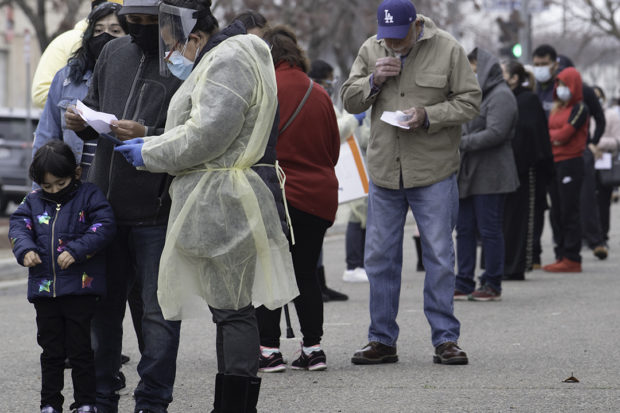
By Veva Islas
The February ice storms that hit Texas gave us a powerful example of the devastation climate change wreaks on vulnerable communities, especially those overseen by uncaring government officials. The Lone Star state could have avoided the needless, tragic loss of life of the elderly, of children and adults living in poverty who had no voice in their government’s decision to not regulate its electrical grid.
But those highly vulnerable families were not given equal consideration by those who made the fatal decisions that led to their deaths. They had no voice in the process. They died just trying to tough it out like they had everything else in life.
In California, we need to brace ourselves for climate disasters and work now to avoid such senseless suffering and loss. From record droughts harming crops to wildfires wiping out entire communities, people’s lives are already being severely disrupted.
Let’s accept that we are no longer in a stage of prevention. We are now in a stage of damage control, which means at this point it’s going to take aggressive policies, aggressive action to protect lives. We must shore up our resources for emergency response, like the ability to cool people in extreme heat or provide warmth in extreme cold.
We need to think about how we’ll fund these systems, resource them. How will we pay to build the infrastructure for it? We must craft a resilient system that does more than respond to emergencies, but one that comes back improved from them, better, stronger, more responsive to community needs. A system rooted in the voices of the people on the frontlines of making this country run.
The Covid-19 pandemic is testing these same resources in a prolonged crisis that has seen more than 1,500 deaths in Fresno County and has soared past 500,000 nationwide. These are staggering figures representing innumerable stories of agonizing loss.
But we’re learning. We are striving to come back from this tragedy with an invigorated system of community health outreach through promotoras, and there is a direct line that connects health to climate change. Not just the threats, but the cures.
Starting with jobs in the most vulnerable communities. A team of local community-based organizations led by public health experts has developed and implemented an integrated system of local employment and benefit to the community in response to Covid.
To effectively communicate the risks of the deadly virus, we have invested in building the infrastructure and building the workforce that is reflective of the communities most impacted. In the promotora model, members of these communities are the first hired to do the work. They are primarily immigrants. They’re Hmong, Latino, Punjabi and much more.
The system has been tested and is yielding positive results. By investing in community organizations rooted in these disadvantaged communities, nonprofits specifically serving communities of color and all of the diverse language needs, we had a better impact than just the existing, broken public health infrastructure.
When we build that infrastructure, it will be in place to help us. And in the same way, I’m hoping that we are building response and infrastructure related to climate that is about educating the community about the things we can do to mitigate continued harm. That is allowing employment and economic opportunities around green businesses, like green construction. That we’re investing in those disadvantaged communities.
Because when we invest in those disadvantaged communities, we know that we are helping to build their resilience because they have good-paying jobs and they’re able to put money away for those rainy days, those emergencies. These are jobs that are paying better than living wages, better than minimum wage. They will have sick days. They will have health and retirement benefits.
That type of employment is what our communities have desperately needed. That’s where we create these real win-wins. We invest in the community. We create an infrastructure that’s the right infrastructure to serve the community. This can begin to level the playing field in terms of the disadvantages that some community members, particularly people of color, have been experiencing for a long while.
Climate resiliency is being developed now. In the field. In real time. Because climate change is here and we must act now.
*****
Veva Islas is the CEO of Cultiva la Salud, an organization dedicated to creating health equity in the San Joaquin Valley by fostering changes in communities that support healthy eating and active living. Cultiva La Salud is among a growing number of programs in the nation that uses a policy and environmental change approach to help community members gain access to healthy food, beverages and safe places to be physically active. Islas is also an Area 4 trustee of the Fresno Unified School District.
